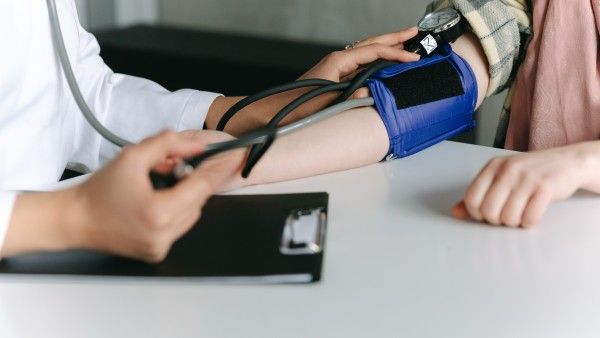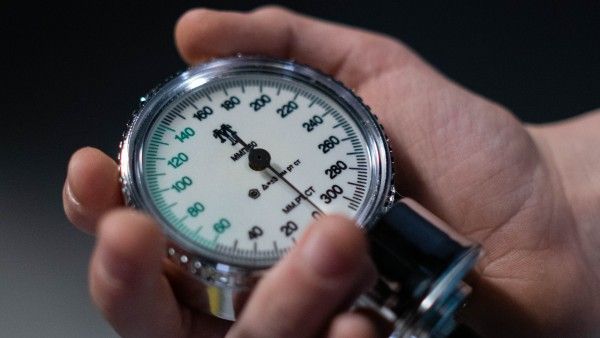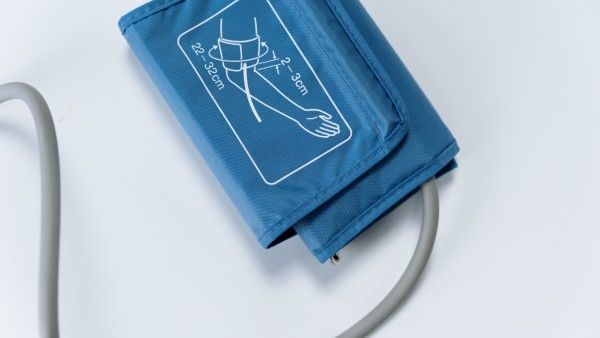Just In
- 39 min ago

- 8 hrs ago

- 17 hrs ago

- 19 hrs ago

Don't Miss
- Finance
 1:10 Split Coming Up: Crorepati FMCG ITC Turns Rs 1,50,000 To Rs 1.2 Crore; Makes Big Announcement; BUY?
1:10 Split Coming Up: Crorepati FMCG ITC Turns Rs 1,50,000 To Rs 1.2 Crore; Makes Big Announcement; BUY? - Sports
 Pakistan vs New Zealand Playing 11: PAK vs NZ 4th T20I Team News, Predicted Lineup And Other Details
Pakistan vs New Zealand Playing 11: PAK vs NZ 4th T20I Team News, Predicted Lineup And Other Details - Education
 JEE Main Result 2024 Out, Telangana's 15 Toppers Shine, Check Statewise List of 56 Candidates with Perfect 100
JEE Main Result 2024 Out, Telangana's 15 Toppers Shine, Check Statewise List of 56 Candidates with Perfect 100 - News
 Mangalsutra Row: Did Indira Gandhi Donate Gold During The 1962 War? The Facts Behind Priyanka's Claim
Mangalsutra Row: Did Indira Gandhi Donate Gold During The 1962 War? The Facts Behind Priyanka's Claim - Movies
 Kota Factory 3 OTT Release Date, Platform: When Will Jitendra Kumar's Web Series Premiere On Netflix?
Kota Factory 3 OTT Release Date, Platform: When Will Jitendra Kumar's Web Series Premiere On Netflix? - Travel
 Escape to Kalimpong, Gangtok, and Darjeeling with IRCTC's Tour Package; Check Itinerary
Escape to Kalimpong, Gangtok, and Darjeeling with IRCTC's Tour Package; Check Itinerary - Technology
 OPPO Find X7 Ultra Camera Deep-Dive: Pushing the Boundaries of Photography on a Smartphone
OPPO Find X7 Ultra Camera Deep-Dive: Pushing the Boundaries of Photography on a Smartphone - Automobiles
 Aston Martin Vantage Launched In India At Rs 3.99 Crore
Aston Martin Vantage Launched In India At Rs 3.99 Crore
Is High Blood Pressure (Hypertension) Affecting Your Body? 15 Negative Effects Of High BP & Ways To Manage It
Nearly one-third of the Indian population suffers from Hypertension or high blood pressure - and that is a fact [1]. Hypertension means having a systolic blood pressure of 140 mm Hg or greater and a diastolic blood pressure of 90 mm Hg or greater. In India, an estimated 30 per cent of women and 32 per cent of men suffer from high blood pressure that can lead to heart diseases.
Blood pressure is the force of the blood against the blood vessels. The normal blood pressure for an adult is 120/80 mmHg, and any deviation from this is considered unhealthy. A decrease in blood pressure is called hypotension, whereas an increase is called Hypertension.
Hypertension develops over the course of several years and may not show any symptoms. It can lead to severe health complications and increase the risk of heart disease, stroke, and sometimes death [2]. Even in the absence of symptoms, the condition can cause damage to your blood vessels and organs, especially the brain, heart, eyes, and kidneys.
Today, we will look at the effects of Hypertension or high blood pressure on your body.

Effects Of Hypertension On The Body
High blood pressure is not a risk factor just for your heart but your overall health. Let's take a look at the complications uncontrolled high blood pressure can cause.
1. Aneurysm: Aneurysm is the abnormal bulge in the major blood vessel (aorta) wall that carries blood from your heart to your body. Aneurysms are more common in men than in women [3]. It is caused by the constant pressure of blood moving through a weakened artery (due to high BP), which in turn may potentially rupture and cause life-threatening internal bleeding.
2. Coronary Artery Disease (CAD): People with high blood pressure are more likely to develop coronary artery disease, as high BP puts added force against the artery walls and also clogs coronary arteries with fatty plaques. The build-up of various substances can narrow the coronary arteries and develop coronary artery disease, which is the primary cause of heart attack [4].
3. Dementia: Dementia is considered as a progressive form of memory decline where the thinking ability deteriorates due to the loss of brain cells. Studies have shown that high blood pressure in mid-life is a primary risk factor for developing dementia in later life [5].
4. Artery Damage: High blood pressure puts excessive pressure on the artery walls, damaging them and resulting in fat or plaque build-up [6]. This plaque makes the arteries stiff and narrower, making them unable to do their function.
5. Angina (chest pain): Angina is not a disease but a symptom of coronary artery disease. It is also known as angina pectoris and is a type of chest pain caused by reduced blood flow to the heart. It is often described as a heaviness, pressure or tightness in the chest. The heaviness experienced can extend to your arms, neck, jaw, back or stomach as well. Angina is common and can affect anyone. It is not life-threatening in most cases; however, it can be an indicator of heart disease. An angina attack can last from 1 to fifteen minutes [7].
6. Peripheral Artery Disease (PAD): Peripheral Artery Disease (PAD), also called peripheral vascular disease (PVD), is the abnormal narrowing of arteries in the leg. It is a common circulatory problem where the narrowing of the arteries will reduce the blood flow to the limbs [8]. One of the major risks for PAD is high blood pressure.
7. Enlarged Heart: Cardiomegaly is a medical condition in which the heart is bigger in size than its usual size. The condition is commonly termed an enlarged heart. For an individual with high BP, the heart has to pump harder to deliver blood to the rest of your body, enlarging and thickening the muscle [9].
8. Heart Attack: A heart attack occurs when then blood flow to the heart is blocked. It can be defined as the death of heart muscles due to the lack of blood supply. This usually happens when a blood clot blocks the artery supplying the heart muscle. Consequently, Hypertension can damage your arteries by making them less elastic, which in turn decreases the flow of blood and oxygen to your heart and results in heart attacks [10].

---
9. Heart Failure: High blood pressure levels in your body can increase your heart's workload and narrow the arteries. This, in turn, can weaken the heart and result in heart failure.
10. Stroke: A stroke occurs when blood supply to the brain stops or is restricted. If blood flow to the brain is stopped, then there will be permanent damage to the brain resulting in instant death. High BP damages arteries throughout the body, increasing the risk of weakened arteries, resulting in stroke [11].
11. Kidney Failure: As mentioned before, high blood pressure can constrict and narrow the blood vessels, weakening them as well as the kidneys [12]. High blood pressure is one of the major causes of chronic kidney disease, and kidney disease can also cause high blood pressure.
12. Eye-sight Issues: High blood pressure can slow down and eventually restrict the blood flow to the retina and the optic nerve, both of which are responsible for sending signals to your brain. In some cases, high BP can blur your vision, whereas in severe cases, it could scar the tissue and distort your vision [13].
13. Sexual Dysfunction (both men and women): High blood pressure can slow down blood flow anywhere in the body, which can cause sexual dysfunction in both men and women. It can make you feel tired and fatigued and reduce the sex drive, too [14][15].
14. Bone Loss: Studies have pointed out that high blood pressure can cause your body to lose more calcium than the normal levels, resulting in low calcium levels. This can result in bone loss, leading to fractures, especially in older women [16].
15. Sleep Apnoea: High blood pressure has been shown to cause sleep apnoea. Several studies have linked sleep apnoea to high blood pressure since many people who are diagnosed with the condition also have high blood pressure [17].


Tips To Manage High Blood Pressure
Lifestyle plays a major role in treating high blood pressure. Incorporating certain lifestyle changes can lower high blood pressure naturally. Read on to know the ways to naturally lower high blood pressure.
- Maintain a healthy weight
- Exercise regularly - at least for 30 minutes daily
- Reduce salt (sodium) consumption [18]
- Quit smoking
- Reduce alcohol consumption
- Limit caffeine consumption
- Cut back on sugar [19]
- Eat potassium-rich foods
- Include probiotics in the diet
- Manage your stress levels (talk to a doctor) [20]
- Monitor blood pressure levels regularly

On A Final Note…
High blood pressure is sometimes called the silent killer because there are no symptoms due to which it can go unnoticed for years. But a proper diet consisting of potassium, fibre, magnesium and low sodium can help control high blood pressure. Regular visits to the doctor too, are a must.
- Can hypertension be cured?
No. Hypertension is a chronic disease. It can be controlled with medication, but it cannot be cured.
- Can you live a long life with high blood pressure?
If left untreated, an individual with a blood pressure of 180/120 or higher results has an 80 per cent chance of death within one year.
- What are the 5 symptoms of high blood pressure?
The primary symptoms of high blood pressure include severe headache, nosebleed, fatigue, chest pain, vision problems etc.
- What happens to your body when you have high blood pressure?
High blood pressure can damage your arteries and cause damage to your blood vessels and organs, especially the brain, heart, eyes, and kidneys.
- How long does it take to lower blood pressure with diet and exercise?
You need to keep exercising on a daily basis and maintain a healthy diet rich in fruits and vegetables. Following this regularly and religiously can help you manage the condition. Go for regular check-ups to keep your blood pressure.
- Which fruit is good for high blood pressure?
Berries are rich in natural compounds called flavonoids that can help lower blood pressure.
- What foods can lower blood pressure immediately?
Berries, bananas, dark chocolate, watermelon, kiwi, oats and green leafy vegetables can lower blood pressure.
-
 wellnessHypertension In India: This State Is On Top; Is It The Food Habits Cause For High BP?
wellnessHypertension In India: This State Is On Top; Is It The Food Habits Cause For High BP? -
 healthBlood Pressure: Is Feeling High Blood Pressure When Lying Down Normal or Risky?
healthBlood Pressure: Is Feeling High Blood Pressure When Lying Down Normal or Risky? -
 healthHigh BP? Listen To Mozart To Reduce Hypertension: Study Suggests
healthHigh BP? Listen To Mozart To Reduce Hypertension: Study Suggests -
 healthCan Vitamin D Help Lower Cardiovascular Disease Risk? Does It Reduce High BP?
healthCan Vitamin D Help Lower Cardiovascular Disease Risk? Does It Reduce High BP? -
 healthPocket-Friendly Foods To Manage High Blood Pressure
healthPocket-Friendly Foods To Manage High Blood Pressure -
 healthHow To Manage Stress And High Blood Pressure In The First Place
healthHow To Manage Stress And High Blood Pressure In The First Place -
 wellnessHypertension: Is It Risky To Drink Black Coffee? What Is The Safe Amount?
wellnessHypertension: Is It Risky To Drink Black Coffee? What Is The Safe Amount? -
 yogaYoga And Hypertension: Can 15 Minutes Of Yoga Control Blood Pressure?
yogaYoga And Hypertension: Can 15 Minutes Of Yoga Control Blood Pressure? -
 wellnessIs There A Link Between Drinking Too Much Water And Blood Pressure?
wellnessIs There A Link Between Drinking Too Much Water And Blood Pressure? -
 wellnessExtended Prescription For Chronic Diseases Helped India Cope Better During COVID, Say Health Expert
wellnessExtended Prescription For Chronic Diseases Helped India Cope Better During COVID, Say Health Expert -
 wellnessDaily Paracetamol Use Increases Blood Pressure And Heart Attack Risk: Study
wellnessDaily Paracetamol Use Increases Blood Pressure And Heart Attack Risk: Study -
 wellnessFlavonoid-rich Foods Could Lower Your Blood Pressure, Study
wellnessFlavonoid-rich Foods Could Lower Your Blood Pressure, Study


 Click it and Unblock the Notifications
Click it and Unblock the Notifications



